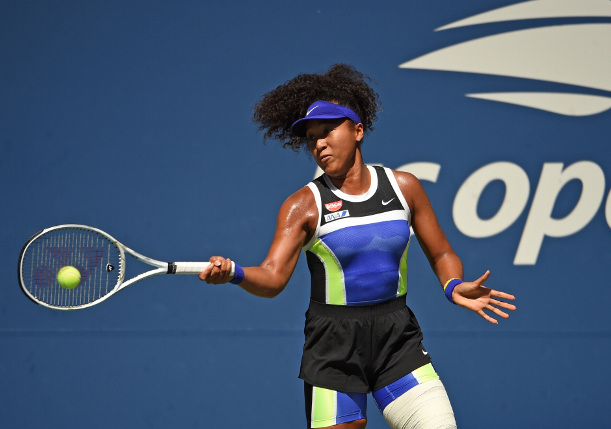
By Richard Pagliaro | Wednesday, August 25, 2021
Reigning US Open champion Naomi Osaka raised the importance of mental health with her Roland Garros withdrawal—and a call to change the standard post-match press conferences.
The US Open has announced a series of iniatives to support the mental health of its players.
McEnroe: Djokovic Will Win Four More Majors
US Open tournament director Stacey Allaster said today the Flushing Meadows majors aims to continue is tradition of post-match press conferences and in the case of a player struggling with anxiety or a mental health issue, staff doctors will evaluate the player and make the final call on a player's availability for post-match press.
"I think it's really important that as we go on this journey with mental health, players making themselves available to media is critically important for our fans," Allaster told the media in a US Open conference call today. "There's no change to our rules. They will be applied fairly to all players. But our rules do provide flexibility regarding an athlete's health. We've done this in the past where an athlete may have sprained their ankle, and they're not available to go to the formal press room.
"There will be medical evaluation, and the doctors will make a determination. Maybe we need more time. Maybe we need an alternative format that's less formal than going to the press. Maybe we do it the following day. Maybe there's questions submitted to the athlete, and the tour comms person provides that feedback to the press. Those are the types of alternatives that we will look at. That's how we have operated for many years, together with the ATP and the WTA, to help the athletes."
The US Open also announced "press conference moderators will help facilitate an environment of mental wellness and well-being and provide athlete support if requested."
In a column she wrote for Time Magazine last month, Osaka discussed the controversy over her decision to skip Roland Garros pressers to protect her mental health and asserts it’s time for traditional post-match press conferences to change.
“In my opinion (and I want to say that this is just my opinion and not that of every tennis player on tour), the press-conference format itself is out of date and in great need of a refresh.” Osaka wrote. “I believe that we can make it better, more interesting and more enjoyable for each side. Less subject vs. object; more peer to peer.”
The four-time Grand Slam champion said she's not seeking to eliminate post-match pressers, she’s simply asking to revise the press conference format.
“The intention was never to inspire revolt, but rather to look critically at our workplace and ask if we can do better,” Osaka wrote.
Spearheading the USTA’s mental health efforts will be:
Brian Hainline, MD, the USTA’s First Vice President and chair, ITF Sports Sciences & Medicine Commission, as well as NCAA Chief Medical Officer, and professor of neurology at Indiana University and New York University Schools of Medicine
Claudia Reardon, MD, professor in the University of Wisconsin School of Medicine and Public Health, Department of Psychiatry, and specialist in sports psychiatry
Stacey Allaster, Chief Executive, Professional Tennis, USTA, and US Open Tournament Director
Mardy Fish, current captain of the U.S. Davis Cup team, former top-ranked U.S. player and Olympic silver medalist, who coped with anxiety during his playing days.
The US Open will provide players with access to licensed mental health care professionals as well as recovery services and quiet rooms both on site and at the player hotel.
Allaster said concern for players' mental health is one reason why the 2021 US Open will not confine players to a safety bubble as was the case last year when the 2020 US Open was played without fans amid a tight safety bubble. This year, players have the option to stay at one of the two tournament hotels or in private homes and are also permitted to move around New York City and dine in the city's restaurants.
"We heard loud and clear the athletes' mental health through these last 12 months, the isolation in the bubbles, was important, that they could have some flexibility," Allaster said. "Each of us every day, we are living with the virus. It's therefore then our collective responsibilities on how we do it and the protocols that we put in place."
Photo credit: US Open Facebook